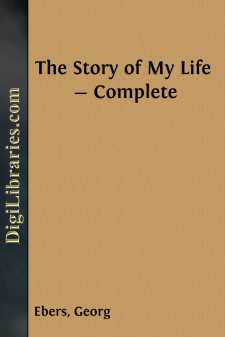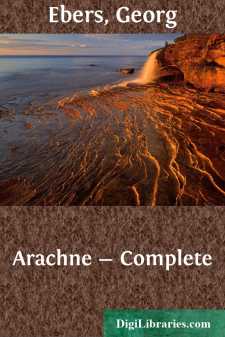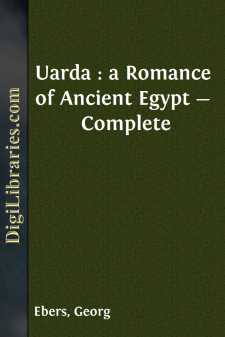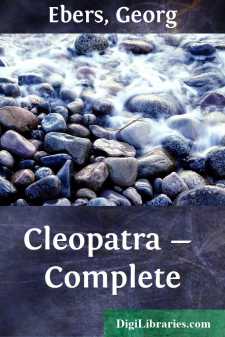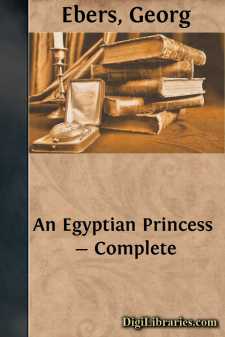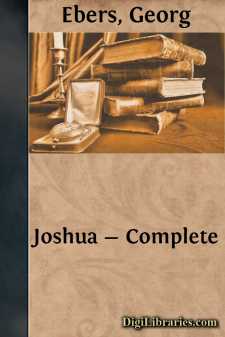Categories
- Antiques & Collectibles 13
- Architecture 36
- Art 48
- Bibles 22
- Biography & Autobiography 813
- Body, Mind & Spirit 142
- Business & Economics 28
- Children's Books 17
- Children's Fiction 14
- Computers 4
- Cooking 94
- Crafts & Hobbies 4
- Drama 346
- Education 46
- Family & Relationships 57
- Fiction 11829
- Games 19
- Gardening 17
- Health & Fitness 34
- History 1377
- House & Home 1
- Humor 147
- Juvenile Fiction 1873
- Juvenile Nonfiction 202
- Language Arts & Disciplines 88
- Law 16
- Literary Collections 686
- Literary Criticism 179
- Mathematics 13
- Medical 41
- Music 40
- Nature 179
- Non-Classifiable 1768
- Performing Arts 7
- Periodicals 1453
- Philosophy 64
- Photography 2
- Poetry 896
- Political Science 203
- Psychology 42
- Reference 154
- Religion 513
- Science 126
- Self-Help 84
- Social Science 81
- Sports & Recreation 34
- Study Aids 3
- Technology & Engineering 59
- Transportation 23
- Travel 463
- True Crime 29
The Story of My Life - Complete
by: Georg Ebers
Categories:
Description:
Excerpt
TO MY SONS.
When I began the incidents of yore,
Still in my soul's depths treasured, to record,
A voice within said: Soon, life's journey o'er,
Thy portrait sole remembrance will afford.
And, ere the last hour also strikes for thee,
Search thou the harvest of the vanished years.
Not futile was thy toil, if thou canst see
That for thy sons fruit from one seed appears.
Upon the course of thine own life look back,
Follow thy struggles upwards to the light;
Methinks thy errors will not seem so black,
If they thy loved ones serve to guide aright.
And should they see the star which 'mid the dark
Illumed thy pathway to thy distant goal,
Thither they'll turn the prow of their life bark;
Its radiance their course also will control.
Ay, when the ivy on my grave doth grow,
When my dead hand the helm no more obeys,
This book to them the twofold light will show,
To which I ne'er forget to turn my gaze.
One heavenward draws, with rays so mild and clear,
Eyes dim with tears, when the world darkness veils,
Showing 'mid desert wastes the spring anear,
If, spent with wandering, your courage fails.
Since first your lips could syllable a prayer,
Its mercy you have proved a thousandfold;
I too received it, though unto my share
Fell what I pray life ne'er for you may hold.
The other light, whose power full well you know,
E'en though in words I nor describe nor name,
Alike for me and you its rays aye glow—
Maternal love, by day and night the same.
This light within your youthful hearts has beamed,
Ripening the germs of all things good and fair;
I also fostered them, and joyous dreamed
Of future progress to repay our care.
Thus guarded, unto manhood you have grown;
Still upward, step by step, you steadfast rise
The oldest, healing's noble art has won;
The second, to his country's call replies;
The third, his mind to form is toiling still;
And as this book to you I dedicate,
I see the highest wish life could fulfil
In you, my trinity, now incarnate.
To pay it homage meet, my sons I'll guide
As I revere it, 'mid the world's turmoil,
Love for mankind, which putteth self aside,
In love for native land and blessed toil.
GEORG EBERS.
TOTZING ON THE STARNBERGER SEE,
October 1, 1892.
INTRODUCTION.
In this volume, which has all the literary charm and deftness of character drawing that distinguish his novels, Dr. Ebers has told the story of his growth from childhood to maturity, when the loss of his health forced the turbulent student to lead a quieter life, and inclination led him to begin his Egyptian studies, which resulted, first of all, in the writing of An Egyptian Princess, then in his travels in the land of the Pharaohs and the discovery of the Ebers Papyrus (the treatise on medicine dating from the second century B.C.), and finally in the series of brilliant historical novels that has borne his name to the corners of the earth and promises to keep it green forever.
This autobiography carries the reader from 1837, the year of Dr. Ebers's birth in Berlin, to 1863, when An Egyptian Princess was finished. The subsequent events of his life were outwardly calm, as befits the existence of a great scientist and busy romancer, whose fecund fancy was based upon a groundwork of minute historical research.
Dr. Ebers attracted the attention of the learned world by his treatise on Egypt and the Book of Moses, which brought him a professorship at his university, Gottingen, in 1864, the year following the close of this autobiography. His marriage to the daughter of a burgomaster of Riga took place soon afterward. During the long years of their union Mrs. Ebers was his active helpmate, many of the business details relating to his works and their American and English editions being transacted by her.
After his first visit to Egypt, Ebers was called to the University of Leipsic to fill the chair of Egyptology. He went again to Egypt in 1872, and in the course of his excavations at Thebes unearthed the Ebers Papyrus already referred to, which established his name among the leaders of what was then still a new science, whose foundations had been laid by Champollion in 1821.
Ebers continued to occupy his chair at the Leipsic University, but, while fulfilling admirably the many duties of a German professorship, he found time to write several of his novels. Uarda was published in 1876, twelve years after the appearance of An Egyptian Princess, to be followed in quick succession by Homo Sum, The Sisters, The Emperor, and all that long line of brilliant pictures of antiquity. He began his series of tales of the middle ages and the dawn of the modern era in 1881 with The Burgomaster's Wife. In 1889 the precarious state of his health forced him to resign his chair at the university.
Notwithstanding his sufferings and the obstacles they placed in his path, he continued his wonderful intellectual activity until the end. His last novel, Arachne, was issued but a short time before his death, which took place on August 7, 1898, at the Villa Ebers, in Tutzing, on the Starenberg Lake, near Munich, where most of his later life was spent. The monument erected to his memory by his own indefatigable activity consists of sixteen novels, all of them of perennial value to historical students, as well as of ever-fresh charm to lovers of fiction, many treatises on his chosen branch of learning, two great works of reference on Egypt and Palestine, and short stories, fairy tales, and biographies....


